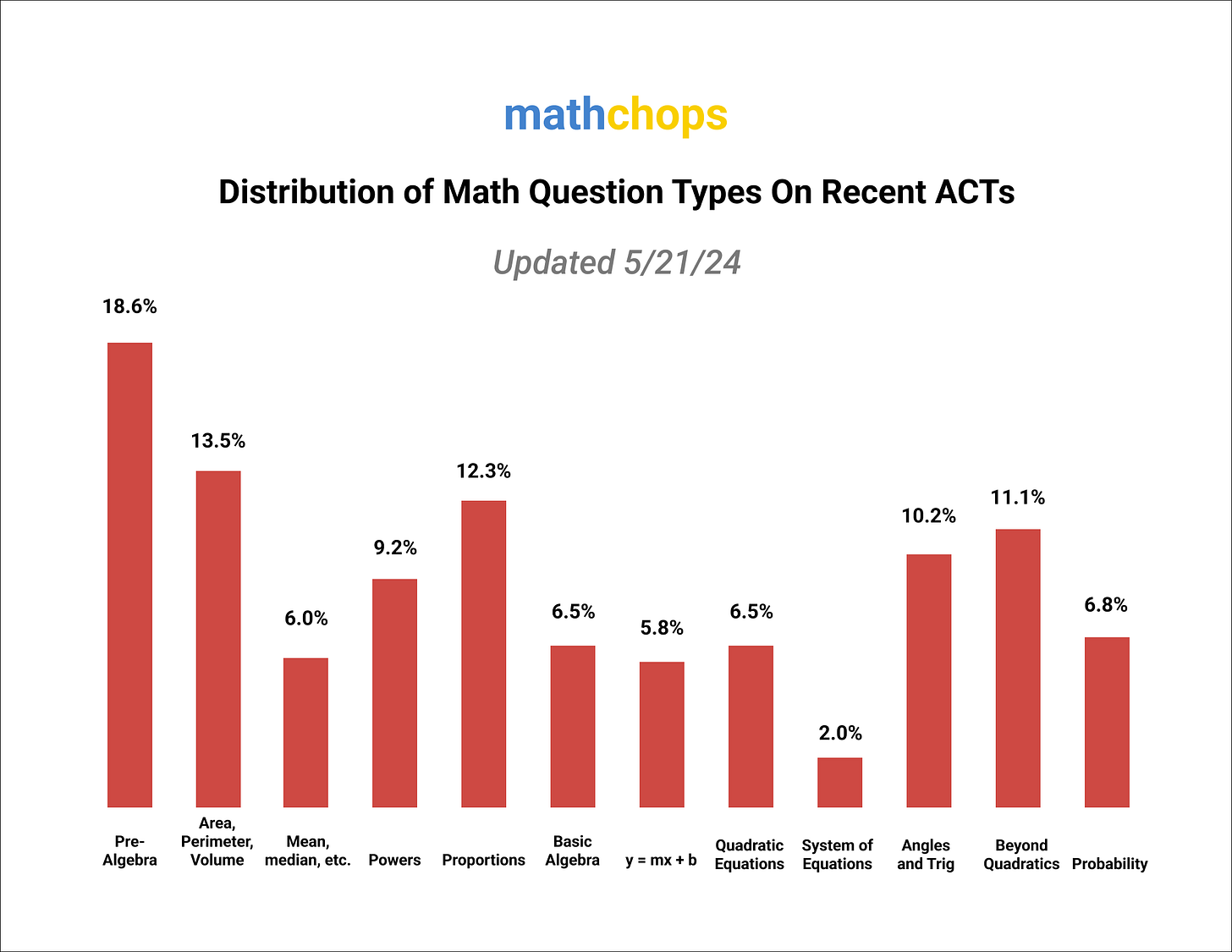Visualization of ACT Math Question Types
Bar graphs for 12 big topics
This is the ACT part of the graph from this post: https://mathchops.substack.com/p/sat-vs-act-math
How I Use It With Students
First, I’ll ask them what they notice. I’m trying to start a conversation, rather than a 5 minute lecture. Here are the points I’m hoping will come up as we talk:
Are there any topics you’re hoping won’t show up on the test? Fractions and percents pop up frequently.
Look at how much Pre-Algebra is on this test! That’s fractions, multiples, factors, remainders, order of operations, basic absolute value…
Look at how much advanced material is on this test! Logarithms, vectors, permutations, ellipses, law of cosines, and basically anything else you might cover in 11th grade is fair game.
It’s pretty different from the SAT. There’s not nearly as much Algebra 1, like systems, y = mx + b, basic algebra equations. All of that stuff is on there, just not as much.
What’s Not On This Graph
The ACT is very broad, but quite shallow. If you are covering a certain topic in school, the ACT question on that topic will seem pretty easy.
The time pressure is intense. You have 60 seconds per question (vs ~95 on the SAT). The old John Wooden quote (“be quick - but don’t hurry”) is really appropriate here.
You can’t use Desmos, but every question is multiple choice. For most students, these details don’t end up mattering by the end of the test prep process – they’ll get used to the tools and format with practice.
If you’d like a PDF of this post, please visit the Mathchops Facebook group: https://www.facebook.com/groups/mathchopseducators
Mathchops finds the best questions for each student, based on their previous answers. If you’d like to try it free, please email mike@mathchops.com.



Great analysis! Here's a case where the Math Reporting Categories are quite helpful. Integrating Essential Skills can represent up to 40% of the questions on the Math section. These skills represent the arithmetic, algebra, and geometry concepts students learn before high school. The twist is that they are all taught at higher levels of depth of knowledge, which makes them quite challenging for test takers. Even LCM can be mystifying when tested the right way.